Wesley J. Smith at the Weekly Standard has written an article lambasting the Swiss for their supposed stand on “plant rights”.
Smith is a senior fellow at the Discovery Institute, that gang of lying clowns who are attempting to take advantage of the uncertainty of science so they can wedge Intelligent Design into schools. I hope you’ll forgive me for spoiling that surprise, but it’ll make the author’s point of view so much clearer if you know that at first, instead of having to wait until the end of the article like I did, when they unveil the author’s identity and you realise you could have put the whole thing in the bin to start. Then again, it is the Weekly Standard.
As a vegetarian, I suppose I feel the same about plants’ rights as meat-eaters do about animal rights. I eat plants because I have to eat something, and I have no problem with doing so because they don’t have feelings, despite what you’ve heard about their psychic powers. Having feelings requires having a brain, and there’s nothing in a plant that corresponds to that kind of structure. On the other hand, I try not to waste plants or treat them mean because I used to read “The Lorax” like every other kid, and someone’s gotta speak for the trees, man. Plus I like to eat plants, and I want to make sure there’s enough of them around for later.
Smith’s discussion of the legally binding nature of ‘plant rights’ is (surprise) misleading. I’ve read the committee report that he mocks as ludicrous. It’s kind of interesting, less of a policy statement than a report on a group discussion. The committee differed widely on what constitutes a good reason to destroy or use plants, and the report explains this up front. It discusses the various views of panel members, but about the only solid conclusion they came to was that plants shouldn’t be arbitrarily destroyed for no rational reason. Which, you know, seems kind of hard to disagree with unless you’re an unreconstructed Dominionist, like Smith seems to be.
Here’s Smith’s take:
What is clear, however, is that Switzerland’s enshrining of “plant dignity” is a symptom of a cultural disease that has infected Western civilization, causing us to lose the ability to think critically and distinguish serious from frivolous ethical concerns. It also reflects the triumph of a radical anthropomorphism that views elements of the natural world as morally equivalent to people.
Isn’t it weird that it’s okay to anthropomorphise nature into a god-being that cares for us, but it’s not okay to anthropomorphise a plant? And if you’ve never seen them anthropomorphise a fetus, well, you’re missing out.
Why is this happening? Our accelerating rejection of the Judeo-Christian world view, which upholds the unique dignity and moral worth of human beings, is driving us crazy. Once we knocked our species off its pedestal, it was only logical that we would come to see fauna and flora as entitled to rights.
You knew it was going to be teh Athiests, didn’t you? Well, that’s pretty interesting. Let’s take a look at that Christianity and how it ‘upholds the unique dignity and moral worth of human beings’ (courtesy of the Brick Testament):
Slavery: okley-dokley.
Women: keep ’em quiet.
Humans: debased sinners.
Well, I feel special now.
What Smith is saying is what all conservatives from Archie Bunker onward have been saying: everyone used to know their place. People were at the top of the ladder, we ate animals and cut down all the trees we wanted, everyone was happy, and no problems ever came up. Until the ’60s, when hippies created all those environmental problems out of sheer faith, because believing things makes them come true and ignoring things makes them disappear, by the grace of dog. And so Smith tries to contrast New Age woo against good ol’ Abrahamic religion, not realising that both are different manifestations of the same problem: the human tendency to embrace unreason.
One rational perspective would be this: Even though plants do not show evidence of consciousness, it would still be morally (the report does not say legally) wrong to destroy them arbitrarily. Humans are one species among many, and we have a great capacity for help or harm. Plants have a certain right to exist, as do humans. The way we manage plants (indeed, how we manage everything) needs to be considered wisely and rationally, and with a view to minimising our impact on nature.
All of which is implied by the Swiss report, but you wouldn’t know it by the way Smith pulls the most controversial minority opinions out of the text. A creationist quote-mining? Now there’s a real surprise.


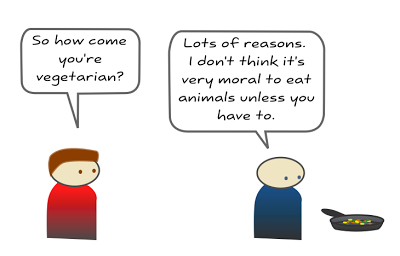

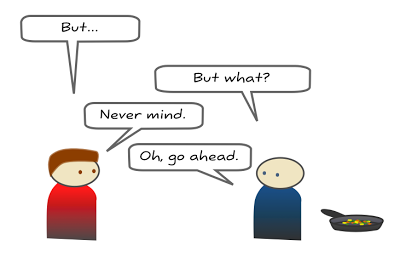
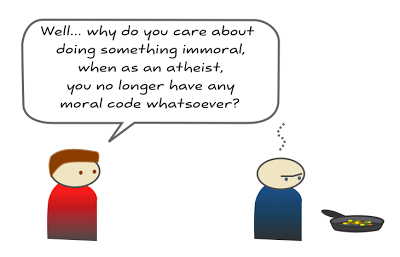
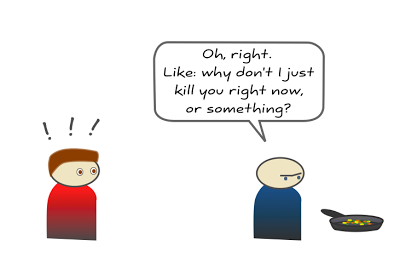
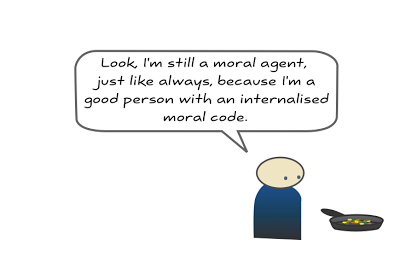
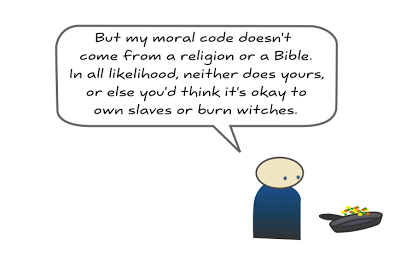
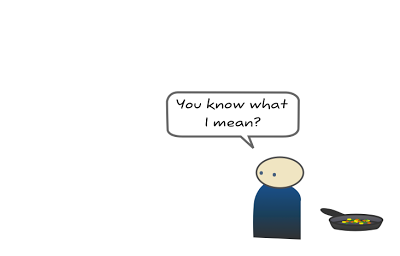


Recent Comments